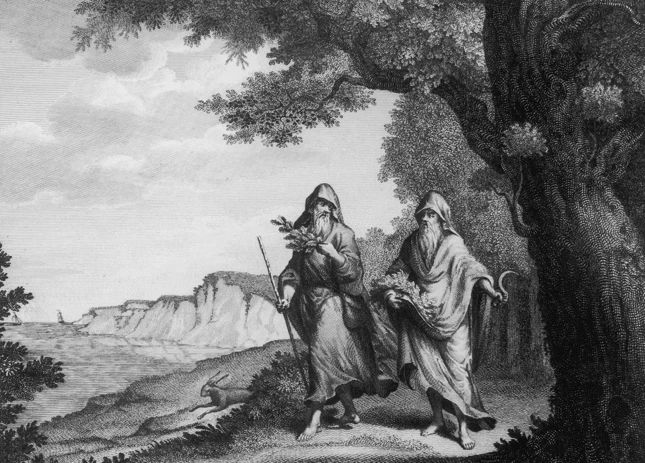Learn about the captivating world of Druids in Celtic mythology and society. Delve into the origins of these enigmatic figures and uncover their deep-rooted beliefs and practices. Discover the significant role that Druids played in Celtic society as spiritual leaders, advisors, and educators. Explore the intriguing connections between Druids and Celtic mythology, as well as their presence in ancient legends and folklore. Uncover the reasons behind the decline of the Druids and their subsequent revival in modern times. Join us on a journey to unravel the mysteries of the Druids and gain a deeper understanding of their place in Celtic history.
The Origins of Druids
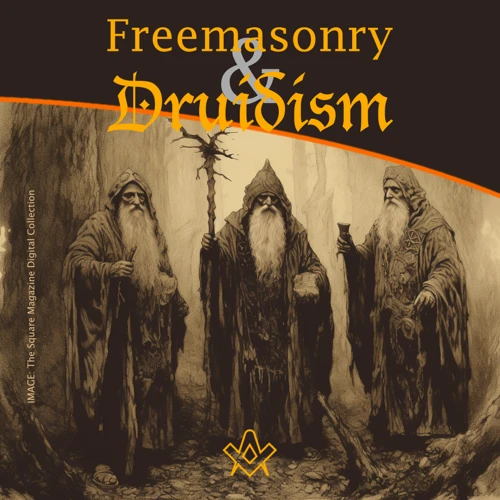
The origins of Druids can be traced back to ancient Celtic societies, where they held a position of great prominence and respect. However, the exact origins of the Druids remain shrouded in mystery and speculation. One theory suggests that the Druids may have descended from an even older tradition of wisdom keepers and spiritual leaders in the Celtic culture. Some sources suggest a possible connection between the early Druids and the ancient Indo-European priests known as the Vedic Brahmins. These similarities include linguistic connections and shared religious practices. Another theory proposes that the Druids emerged as a specialized class within Celtic society, with their knowledge and wisdom passed down through generations of apprenticeship and training. However, due to the lack of written records and the secretive nature of the Druids, it is challenging to determine their exact origins with certainty. To gain further insights into the origins of Druids, it is necessary to explore the larger context of Celtic mythology, which helps shed light on their role and significance within Celtic society. (source: exploring Celtic mythology)
Druidic Beliefs and Practices
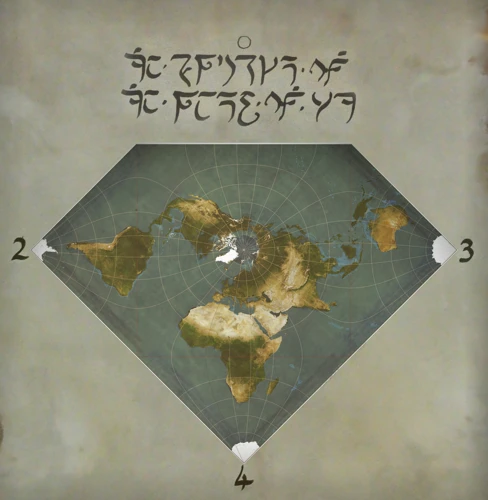
Druidic beliefs and practices were at the core of the ancient Celtic worldview. The Druids held a deep reverence for nature and believed in the interconnectedness of all living beings. Central to their beliefs was the concept of animism, which held that everything in the natural world possessed a spirit and should be respected. The Druids also believed in the existence of multiple realms, including the earthly plane, the spiritual realm, and the realm of the ancestors. They believed in the power of ritual and ceremony to communicate with these realms and sought to maintain harmony and balance in their interactions with the divine. Divination and prophecy played a significant role in Druidic practices, as the Druids sought guidance and insight from the spiritual realm. They would use various methods such as interpreting the flight patterns of birds, studying the movements of celestial bodies, and communing with the spirits of nature to gain spiritual knowledge and guidance. Understanding the beliefs and practices of the Druids provides a fascinating glimpse into the rich tapestry of Celtic mythology and offers insight into the profound spiritual connection that ancient Celts had with their environment. (source: comparing Celtic mythology)
Beliefs of Druids
The beliefs of Druids encompassed a rich and complex spiritual worldview deeply rooted in nature and the cosmos. Druids venerated the natural world, seeing it as a manifestation of divine energy. They believed in the interconnectedness of all living beings and the presence of spiritual forces in every aspect of existence. Central to their belief system was the idea of reincarnation or transmigration of the soul, where the spirit could be reborn in different forms after death. This belief in the eternal nature of the soul emphasized the importance of living in harmony with nature and leading a virtuous life to ensure a favorable afterlife. The Druids also held a deep reverence for sacred sites, such as groves and stone circles, which they believed served as gateways to the spiritual realm. These sites were considered places of immense power and were used for rituals, ceremonies, and gatherings. Additionally, Druids possessed a vast knowledge of herbs, plants, and natural remedies, believing in the healing properties and magical qualities of various plants. Their understanding of herbalism and medicine made them valuable healers and advisers in Celtic society. (source: Irish mythology legends)
Rituals and Ceremonies
Rituals and ceremonies held a central place in the practices of Druids, serving as important occasions for spiritual connection and community gathering. The Druids conducted their rituals in sacred spaces such as groves, stone circles, and natural landmarks, which were believed to be imbued with spiritual energy. These rituals varied in their nature and purpose, ranging from seasonal celebrations to rites of passage and healing ceremonies. The Druids were known for their deep reverence for nature and its cycles, and many of their rituals were focused on honoring and harmonizing with the natural world. They celebrated the solstices, equinoxes, and other seasonal transitions, acknowledging the ever-changing rhythms of the earth. These ceremonies often involved bonfires, chanting, and the offering of sacrifices. The Druids also played a significant role in important life events, such as weddings, births, and funerals, where they would provide spiritual guidance and blessings. Their ceremonies were characterized by a deep sense of symbolism, with the use of sacred herbs, incantations, and ritual tools like the sickle, cauldron, and staff. Additionally, the Druids held rituals for divination and seeking guidance from the spiritual realms. These rituals involved practices such as scrying, where they would gaze into reflective surfaces or natural elements like water or fire, and interpret the messages and signs they received. The rituals and ceremonies of the Druids were an integral part of their belief system and served to foster a strong sense of community, spiritual connection, and reverence for the natural world.
Divination and Prophecy
Divination and prophecy played a vital role in the practices of the Druids. Through their deep connection with nature and the spiritual realm, Druids believed they could communicate with the gods and gain insights into the future. Divination, the art of seeking knowledge of the unknown or the future, was a skill that Druids honed and utilized in various ways. One of the most common methods of divination employed by Druids was the interpretation of natural signs and omens. They would carefully observe the behavior of animals, the flight patterns of birds, and the movement of clouds to discern messages from the divine. Additionally, the Druids practiced augury, which involved interpreting the patterns and shapes formed by the flight of birds. These signs were believed to carry significant meaning and could provide guidance in decision-making and predicting future events.
Another powerful method of divination used by the Druids was the casting of lots. This involved using marked tokens or stones that were thrown, and their positions were then interpreted to reveal hidden insights or messages. The Druids also practiced scrying, which involved gazing into reflective surfaces such as water, mirrors, or crystals to tap into spiritual energies and receive visions or insights. This technique allowed the Druids to gain access to hidden knowledge and receive guidance from the spirit realm.
Prophecy was another aspect of the Druids’ role in Celtic society. They were seen as intermediaries between the mortal world and the gods, capable of receiving divine messages and communicating them to the people. The Druids would enter altered states of consciousness through rituals and meditation to allow for direct communication with the gods. They would convey prophecies, wisdom, and warnings to individuals, tribes, and even kings. These prophetic messages were highly revered and influenced important decisions and actions within Celtic society.
The ability to divine and prophesize provided the Druids with a unique and significant role in Celtic mythology and society. It showcased their mystical powers, their deep spiritual connection, and their position as revered advisors and guides to the Celtic people. Through their divination and prophecy, the Druids offered invaluable insights and foresight that shaped the choices and direction of the Celtic tribes. (source: Irish mythology legends)
The Social Role of Druids
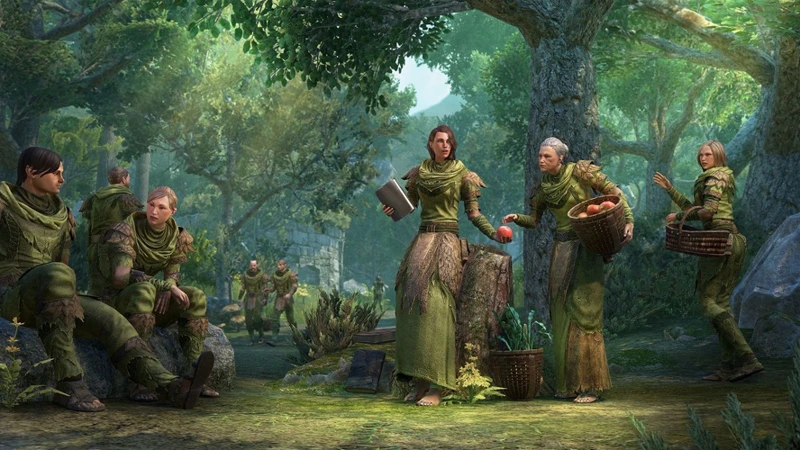
At the heart of Celtic society, Druids played a multifaceted role that extended beyond mere spiritual guidance. They were revered as scholars, educators, legal advisors, and political leaders. The education and training of Druids were rigorous and lengthy, often spanning over two decades. They were responsible for passing down knowledge, preserving history, and teaching the next generation. Druids also served as legal advisors, providing guidance on disputes and acting as mediators. Their wisdom and impartiality made them highly respected in matters of justice. Additionally, Druids held positions of influence in the political landscape, advising rulers and participating in decision-making processes. They acted as intermediaries between the mortal realm and the spiritual world, serving as conduits for communication with deities and offering divination and prophecy services. The social role of Druids encompassed various domains, making them indispensable pillars of Celtic society.
Education and Training
Education and training were integral components of the Druidic tradition. The path to becoming a Druid was rigorous and required years of dedicated study and practice. Young individuals aspiring to become Druids would begin their education at a young age, often in their early teens. They would be apprenticed to experienced Druids who would impart their knowledge and wisdom. The curriculum included an extensive understanding of nature, astronomy, philosophy, poetry, and ancient rituals. The study of sacred texts and memorization of oral traditions were also crucial aspects of their training. Physical fitness and martial arts were emphasized as well, ensuring that aspiring Druids were not only intellectually adept but also physically capable. The training would take place in secluded groves and sacred sites, away from the general population. This isolation allowed the students to immerse themselves fully in their studies and develop a deep connection with nature and the spiritual realm. The education and training of Druids were a lifelong endeavor, as there was always more to learn and discover. It was a sacred responsibility to pass on this accumulated knowledge and wisdom to future generations, ensuring the continuity of Druidic traditions.
Legal and Political Advisors
Druids played a crucial role as legal and political advisors in ancient Celtic society. Their deep knowledge of tribal laws and customs made them highly sought after for their counsel. Druids acted as mediators in disputes and helped to uphold justice within the community. Their wisdom and neutrality earned them a position of trust and respect among the Celtic tribes. They would often attend tribal gatherings and assemblies to provide guidance and settle legal matters. The Druids’ influence extended beyond legal matters as well. They advised tribal leaders on matters of governance, including alliances, warfare strategies, and the welfare of the community. The Druids’ role as political advisors was not limited to individual tribes but also extended to larger scale affairs, such as negotiations between tribes and interactions with neighboring societies. Their knowledge of diplomacy and their ability to foresee the consequences of political decisions made them invaluable assets to Celtic leaders. The Druids’ position as legal and political advisors highlights the high regard in which they were held by the Celtic society, emphasizing their importance and power in shaping the destiny of the ancient Celts.
Spiritual Leaders and Teachers
Druids held a crucial role as spiritual leaders and teachers in Celtic society. They were seen as intermediaries between the divine realm and the mortal world, possessing deep spiritual knowledge and wisdom. As spiritual leaders, Druids guided individuals and communities in matters of spirituality, morality, and ethics. They conducted rituals and ceremonies, offering prayers and sacrifices to the Celtic deities in sacred groves or at stone circles. Druids were believed to have a profound understanding of the natural world and its interconnectedness, providing guidance on how to live in harmony with nature. They imparted knowledge of sacred texts and traditions, passing down their teachings through oral traditions and elaborate apprenticeship programs. The role of spiritual leaders also extended to divination and prophecy. Druids were skilled in reading signs and omens, interpreting dreams, and employing divination tools such as runes or animal bones. Through these practices, they provided guidance and insight into the future, offering advice and predictions to individuals and even rulers. Their ability to tap into the spiritual realm made them highly respected and sought after for their wisdom and counsel. The influence and teachings of Druids played a significant role in shaping the spiritual and moral fabric of Celtic society.
Druids in Celtic Mythology
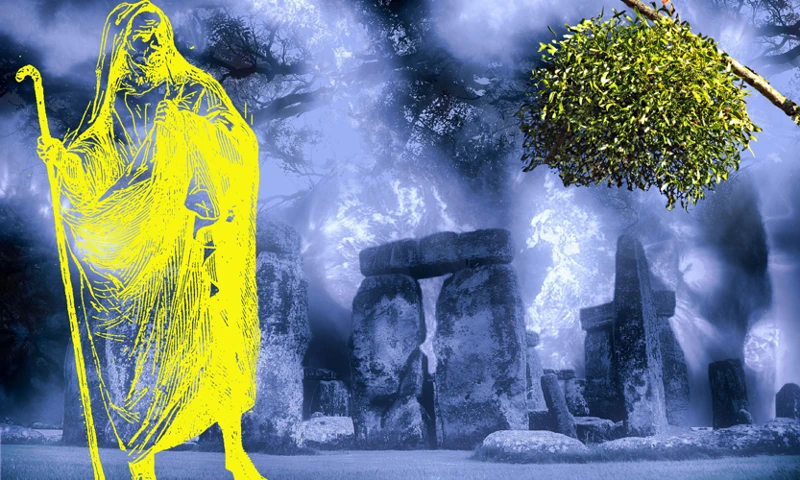
In Celtic mythology, Druids occupy a significant and revered place. They are often depicted as powerful and knowledgeable figures with a deep connection to the natural world and the spiritual realm. Druids are believed to have possessed the ability to commune with gods and spirits, using their wisdom and divination skills to guide and protect their communities. They were considered to be the intermediaries between the mortal and divine realms, interpreting omens, performing rituals, and offering prophecies. Among the important Druidic figures in Celtic mythology is Merlin, an enigmatic figure associated with magic and prophecy. Druids are frequently featured in Celtic legends and folklore, playing pivotal roles in stories of heroism, wisdom, and mysticism. Through their presence in Celtic mythology, Druids continue to captivate our imagination and highlight the deep reverence and importance the Celts placed on their spiritual leaders.
Important Druidic Figures
Within the realm of Celtic mythology, there are several important figures associated with the Druids. One prominent figure is Merlin, also known as Myrddin, who is often depicted as a powerful sorcerer and wise counselor. Merlin is believed to have possessed druidic knowledge and played a significant role in the Arthurian legends. Another notable druidic figure is Cathbad, an influential druid who appears in the Ulster Cycle of Irish mythology. Cathbad possessed prophetic abilities and was highly respected for his wisdom and guidance. He is famously known for his role in the story of Cu Chulainn’s birth and upbringing. Additionally, Taliesin is a renowned figure who is considered both a poet and a druid in Welsh mythology. Revered as a wise sage and a master of poetry, Taliesin is associated with the creation of poetic works and is attributed with numerous mystical and magical abilities. These important druidic figures demonstrate the significant impact and influence of the Druids in Celtic mythology and highlight their role as spiritual leaders, advisors, and keepers of ancient wisdom. (source: Irish mythology legends)
Druids in Celtic Legends and Folklore
Druids hold a significant place in Celtic legends and folklore, where they are often portrayed as wise and powerful figures with a deep connection to the natural world and the forces of magic. In many tales, Druids are depicted as skilled shape-shifters, capable of transforming into animals or merging with the elements. They are often consulted by heroes and rulers for their profound knowledge and ability to foresee the future. One famous example is the story of Fionn mac Cumhaill, a legendary Irish hero who seeks the wisdom of the Druidess, Bóinne, in the pursuit of knowledge and understanding. In another tale, the Welsh legend of Taliesin tells the story of a Druid who becomes a renowned poet and bard. Druids are frequently associated with sacred groves, where they perform rituals and communions with nature spirits. Additionally, in Welsh mythology, the Mabinogion, Druids are depicted as having prophetic abilities, able to interpret dreams and visions with great accuracy. These stories and legends demonstrate the immense importance and reverence given to Druids in Celtic culture, highlighting their role as intermediaries between the mortal realm and the supernatural. (source: Irish Mythology Legends)
The Decline of Druids
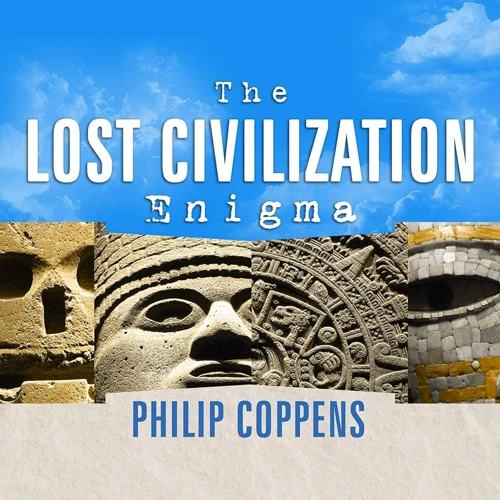
The decline of the Druids can be attributed to a combination of factors that unfolded over time. One significant factor was the Roman conquest of Gaul and Britain, which led to the suppression of Celtic culture and religious practices. The Romans viewed the Druids as a threat to their authority and sought to undermine their influence. As a result, Druidic practices were banned, and Druids were either persecuted or forced to assimilate into Roman society.
Additionally, the spread of Christianity played a role in the decline of the Druids. As Christianity gained prominence in Celtic regions, the old pagan beliefs and practices, including those of the Druids, were gradually supplanted by the new religion. Christian missionaries actively sought to convert the Celtic population and often targeted Druidic sites and practices as part of their efforts.
The increasing centralization of power within Celtic societies also contributed to the decline of the Druids. As Celtic kingdoms became more structured and controlled by rulers and nobles, the influence and role of the Druids diminished. The Druids had traditionally held positions of authority and acted as advisors to kings and chieftains. However, as centralized authority grew, the need for the Druids as political advisors decreased, leading to a decline in their social and political standing.
Lastly, the lack of written records and the oral nature of Druidic teachings also played a role in their decline. With the Roman conquest and the spread of Christianity, much of the Druidic knowledge and wisdom were lost, as it was mostly transmitted orally from one generation to another. The loss of this knowledge further eroded the influence and significance of the Druids within Celtic society.
The decline of the Druids was a culmination of factors such as Roman conquest, the spread of Christianity, the centralization of power, and the loss of traditional knowledge. Despite their decline, the Druids continue to hold a mythical and mystical place in Celtic folklore and have experienced a revival in modern times as people seek to reconnect with ancient Celtic traditions.
Modern Interpretations and Druid Revival
Modern interpretations of Druids and the Druidic tradition have experienced a revival in recent times, as individuals seek to reconnect with their Celtic roots and ancestral beliefs. This resurgence can be attributed to a variety of factors, including a growing interest in spirituality, a desire for a connection with nature, and a fascination with ancient traditions. One notable movement that has contributed to the revival of Druidry is the Neo-Druidic movement, which emerged in the 18th century and gained momentum in the 19th and 20th centuries. This movement sought to reinterpret and adapt Druidic practices to fit the modern world, emphasizing principles such as environmentalism, reverence for nature, and personal empowerment. Modern Druids often participate in rituals, ceremonies, and gatherings that pay homage to Celtic traditions. These gatherings, known as Druid groves, provide a space for individuals to connect with nature, engage in meditation and contemplation, and celebrate the changing seasons. While modern interpretations of Druids may differ from the practices of their ancient counterparts, they still carry a sense of reverence for nature, wisdom, and spirituality. The revival of Druidry serves as a testament to the enduring allure of Druids and their continued relevance in contemporary society. (source: comparing Celtic mythology)
Conclusion
In conclusion, the role of Druids in Celtic mythology and society was multifaceted and profound. As spiritual leaders, they held deep-rooted beliefs and engaged in rituals and ceremonies to maintain harmony with nature and the divine. Through their divination and prophecy, they provided guidance and foresight to their communities. In addition to their spiritual role, Druids also served as educators, imparting knowledge to the younger generations through extensive training and apprenticeships. They were also highly respected as legal and political advisors, playing a crucial role in decision-making and governance. Throughout Celtic mythology, Druids were depicted as wise and powerful figures, often portrayed as important characters who possessed great knowledge and magical abilities. However, with the decline of the Celtic civilization and the influence of Christianity, the role of the Druids diminished, and their practices were suppressed. In modern times, there has been a revival of interest in Druidry, as individuals seek to reconnect with the ancient wisdom and spirituality associated with the Druids. This resurgence allows for a greater understanding and appreciation of the profound role that Druids played in Celtic mythology and society.
Frequently Asked Questions
1. What does the term “Druid” mean?
The term “Druid” is believed to have originated from the Celtic word “dru-wid,” which translates to “oak-knower” or “knowing the oak.” This connection to oak trees highlights their significance in Celtic culture and the importance of nature in Druidic beliefs.
2. Were Druids exclusively male?
While Druids were predominantly male, there is evidence to suggest that women also held roles of spiritual leadership within the Celtic society. These women were known as “Druidesses” and played significant roles in religious ceremonies and practices.
3. Did Druids practice human sacrifice?
There is debate among historians regarding whether Druids practiced human sacrifice. While some ancient texts mention Druidic rituals involving sacrifice, the extent and frequency of such practices remain unclear.
4. Were Druids only found in Celtic societies?
Druidic traditions were primarily associated with Celtic cultures, but similar figures and practices existed in other Indo-European societies. While their roles and specific beliefs varied, there are parallels that can be drawn between Druids and other ancient priestly classes.
5. Were Druids considered magical practitioners?
Druids were often regarded as having access to mystical and magical knowledge. They were believed to possess the ability to communicate with spirits, perform divination, and practice healing arts. However, the exact nature of Druidic magic remains elusive.
6. How were Druids educated?
Druids underwent extensive training and education that often lasted for many years. Their education included the memorization of sacred texts, learning about herbal medicine, astronomy, moral philosophy, and the customs and traditions of the Celtic society.
7. Did Druids have any political influence?
Yes, Druids played a significant role as legal and political advisors in Celtic society. They were respected for their wisdom and often offered guidance to kings, chieftains, and other leaders. Their counsel was highly sought after in matters of governance, war, and peace.
8. Are there any famous Druidic figures in Celtic mythology?
Yes, there are several renowned figures associated with Druids in Celtic mythology. One notable figure is Merlin, the wise advisor of King Arthur in Arthurian legends. Another is Cathbad, the Druid who predicted the future of the hero Cú Chulainn in Irish mythology.
9. What led to the decline of the Druids?
The decline of the Druids can be attributed to various factors, including the Roman conquest of Celtic lands and the spread of Christianity. The Romans viewed Druids as a threat to their authority, leading to their suppression and persecution. The rise of Christianity brought further challenges to the Druidic traditions.
10. How has Druidry been revived in modern times?
In modern times, there has been a revival of interest in Druidry and the ancient Celtic traditions. Many people are drawn to its connection with nature, spirituality, and the wisdom of the past. Contemporary Druids draw inspiration from historical sources and adapt their practices to the present day.

